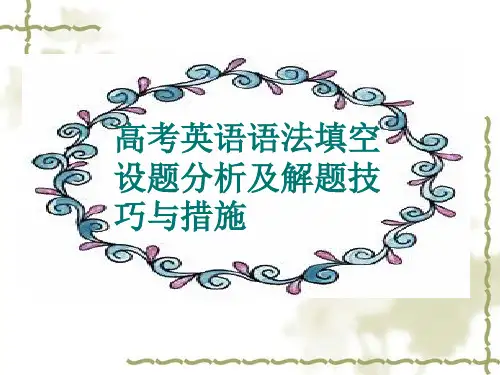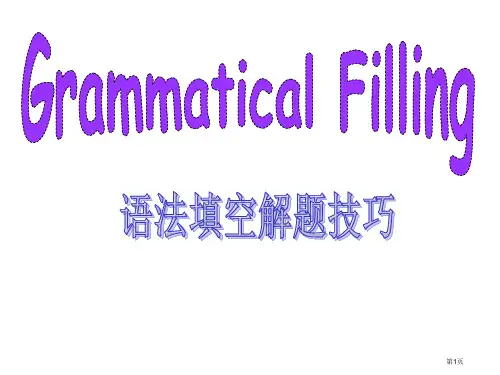语法填空解题技巧公开课
- 格式:pptx
- 大小:824.59 KB
- 文档页数:34

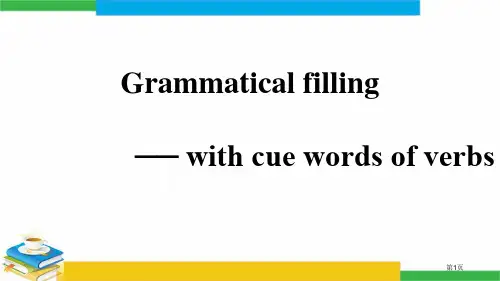
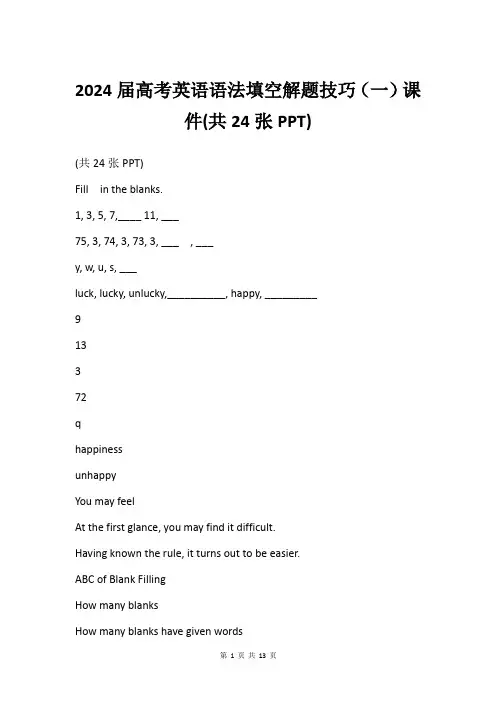
2024届高考英语语法填空解题技巧(一)课件(共24张PPT)(共24张PPT)Fill in the blanks.1, 3, 5, 7,____ 11, ___75, 3, 74, 3, 73, 3, ___ , ___y, w, u, s, ___luck, lucky, unlucky,__________, happy, _________913372qhappinessunhappyYou may feelAt the first glance, you may find it difficult.Having known the rule, it turns out to be easier.ABC of Blank FillingHow many blanksHow many blanks have given words一篇200字左右的短文,留出10个空。
(7个)用所给单词的正确形式填空。
(每空1-3个单词)(3个)根据上下文填写空白处内容。
(每空1个单词)有提示词无提示词Tips for Blank Filling(I)(With Given Words)有提示词Look and conclude61 62 63 64 65 66 67 68 69 702023 动词时态形↓ 副定语从句名词连词非谓语动词主谓一致(动词)被动语态(动词)固定搭配代词2023 56 名词性从句57 名↓ 名复58 形↓ 副59 形容词比较60 形容词61 动词时态62 连词63 非谓语动词64 代词65冠词2022 56 非谓语动词57 冠词58 动词时态59 非谓语动词60 被动语态(动词)61 连词62 名↓ 名复63 形↓ 副64 介词65Top Four PossibilitiesTop1: 动词(verbs)Top2: 形容词(adjectives)Top3: 名词(nouns)Top4: 代词(pronouns)考点一:动词2023:61. touch—touched 66. find—to find67. mean--means68. construct—is constructed考点分析2023:61. is—was 63. ache--aching 2022: 56. cover—covering 58. be—were59. increase—to increase60. design—is designedRule One:如果仍需谓语动词,则考虑时态语态及主谓一致;前或后有合乎时态形式的主谓结构且无连词或关系词则用非谓语动词,一般填doing, done, to do;或改成对应词性的词。
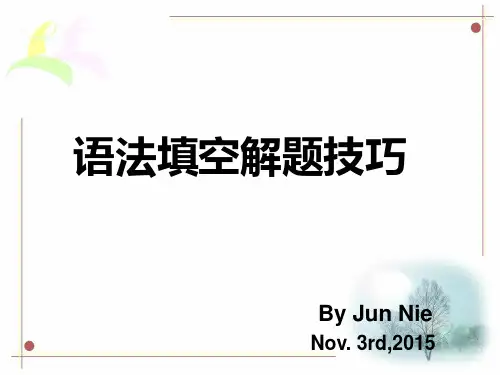
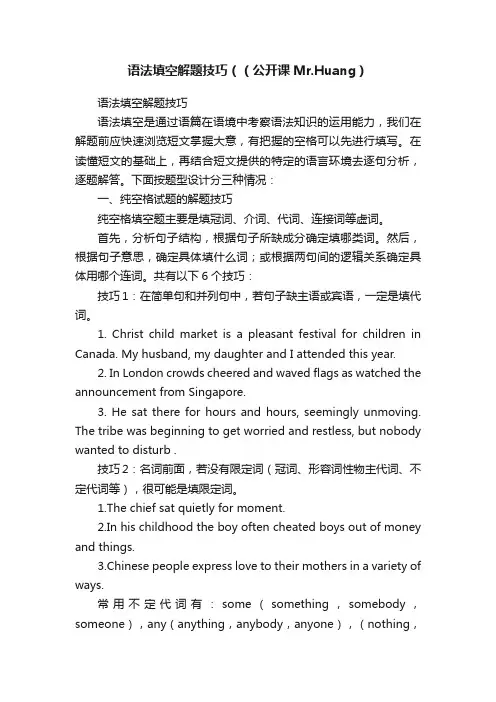
语法填空解题技巧((公开课Mr.Huang)语法填空解题技巧语法填空是通过语篇在语境中考察语法知识的运用能力,我们在解题前应快速浏览短文掌握大意,有把握的空格可以先进行填写。
在读懂短文的基础上,再结合短文提供的特定的语言环境去逐句分析,逐题解答。
下面按题型设计分三种情况:一、纯空格试题的解题技巧纯空格填空题主要是填冠词、介词、代词、连接词等虚词。
首先,分析句子结构,根据句子所缺成分确定填哪类词。
然后,根据句子意思,确定具体填什么词;或根据两句间的逻辑关系确定具体用哪个连词。
共有以下6个技巧:技巧1:在简单句和并列句中,若句子缺主语或宾语,一定是填代词。
1. Christ child market is a pleasant festival for children in Canada. My husband, my daughter and I attended this year.2. In London crowds cheered and waved flags as watched the announcement from Singapore.3. He sat there for hours and hours, seemingly unmoving. The tribe was beginning to get worried and restless, but nobody wanted to disturb .技巧2:名词前面,若没有限定词(冠词、形容词性物主代词、不定代词等),很可能是填限定词。
1.The chief sat quietly for moment.2.In his childhood the boy often cheated boys out of money and things.3.Chinese people express love to their mothers in a variety of ways.常用不定代词有:some(something,somebody,someone),any(anything,anybody,anyone),(nothing,nobody,no one),every(everything,everybody,everyone,),all,each,both,much,many,(a)little,(a)few,other(s),another,none,one,either,neither等。



